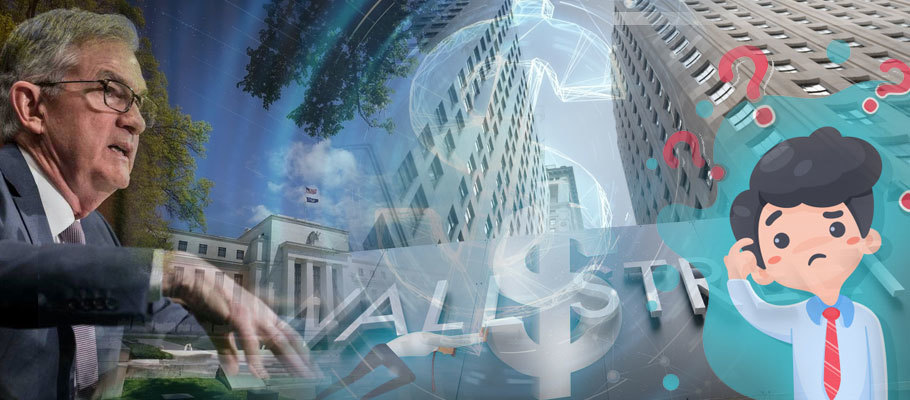
Published: March 26th, 2021
America’s financial services industry is bracing for what could be its most significant disruption in decades, as the Federal Reserve gets ready to unveil progress-to-date and plans for the rollout of a digital dollar.
Wall Street is worried. Despite its recent embrace of cryptocurrencies and digital asset services, credit card companies, high street banks, payment processors are watching the push for an electronic alternative to paper bills nervously, fearing it could signal an end to their vice-like grip on the industry.
Researchers at the Massachusetts Institute of Technology (MIT) have been working with officials at the Federal Reserve Bank of Boston to develop a prototype digital dollar platform. This July, they plan to unveil their research, with a phased rollout plan expected to follow shortly thereafter.
A digital dollar or ‘Fedcoin,’ as some are calling it, could fundamentally alter how Americans use money and gain access to debt. The potential for innovation, and new competition, has some of the country’s biggest financial firms lobbying the central bank and both houses of Congress to put the brakes on the project or involve them more closely to ensure they can influence the direction of travel.
Seeing a potential threat to their traditional revenue streams, the leading trade group representing banks and payment processors is already banging the drum for a halt to the project. There’s no need for a digital dollar, they say. Credit card companies like Mastercard and Visa are taking a different tack, attempting to work with the Fed and central banks in other countries where a national digital currency is on the agenda, to ensure that any new forms of digital payment can be used on their networks.
Reacting to the Fed/MIT announcement this week, analysts at tech research firm Compass Point Research & Trading said that traditional finance is worried that a Fedcoin will spur new competition and push aside today’s incumbent players.
Despite their size and resources, big banks have struggled to re-engineer their old school products and service for the digital age. FinTech startups have proven more adept at delivering banking services, particularly for an increasingly smartphone-oriented customer base.
The lobbying efforts may yet pay off. Treasury Department officials, politicians, and the Fed have yet to formally approve a digital dollar rollout and are likely still in watch-and-see mode. As they gauge public and industry reaction, the formal launch of a Fedcoin could be years away.
Washington also has to decide how a digital dollar would be woven into the current global payments network. Nonetheless, the pace and sense of urgency governments have displayed for digitizing their fiat currencies, particularly in the last 18 months, makes executives at some of the biggest names in finance visibly nervous.
A spokesperson for the Atlantic Council’s GeoEconomics Center, which has been involved in policy discussions around digital currencies, said that a fire had been lit, and the world is now 'rushing to bring these digital currency projects to fruition.’
At the moment, central banks in dozens of countries are overseeing active research to prepare the ground for a virtual currency.
In the Eurozone, there are projects underway in 19 of the EU’s 27 member states, from Austria to Luxembourg, Malta, the Netherlands, and Spain.
One of the issues they’ll need to iron out is the form any digital cash will take and its compatibility with other digital currencies. All of this is happening amid the mushrooming popularity of cryptocurrencies like Ethereum and Bitcoin, whose market cap has exploded in the last 12 months to surpass USD 1 trillion.
Central bank digital fiat projects are partly a response to the challenges posed by crypto’s rise. Unlike privately created coins, ‘official’ government digital currencies would be issued and controlled by central banks as an alternative to physical cash. Paper bills wouldn’t disappear (at least not immediately), but with the rise of e-commerce and the convenience of digital money, it’s expected that their use would sharply decline.
The Fed’s effort got an additional push from Treasury Secretary Janet Yellen last month when she said a digital dollar could be a boon for ‘un-banked’ Americans who don’t have access to things like savings accounts and debit cards.
In an attempt to assuage the banks, Federal Reserve Chair Jerome Powell told a finance audience in Switzerland last week that any US digital currency would need to be integrated with current payment systems and work in tandem with traditional cash and other forms of payment.’
This week Powell told a panel of International Settlements experts that the Fed needs to be at the forefront of technological innovation, but the digital dollar isn’t being rushed. All its costs and benefits are being carefully considered. Powell added that the Federal Reserve wouldn’t take anything forward without legislative support from Congress.
In the announcement this week, MIT researchers said they hope to be able to demo some of their work by Q3 of this year, with an early look at two software platform prototypes for storing, moving, and settling transactions made using digital dollars.
There has been speculation that the planned Fedcoin might use blockchain technology to ape some of the benefits of cryptocurrencies like Bitcoin. Once its prototypes are released, MIT says it will take an open-source approach, where others will be able to view and build on the code.
The project is meant to demonstrate what’s possible without taking a stand on significant issues that fall under the central bank and Congress's remit. Those bodies need to decide, for example, whether to allow anonymity, who should host customer accounts, and what protections consumers would have in case of an error or hack.